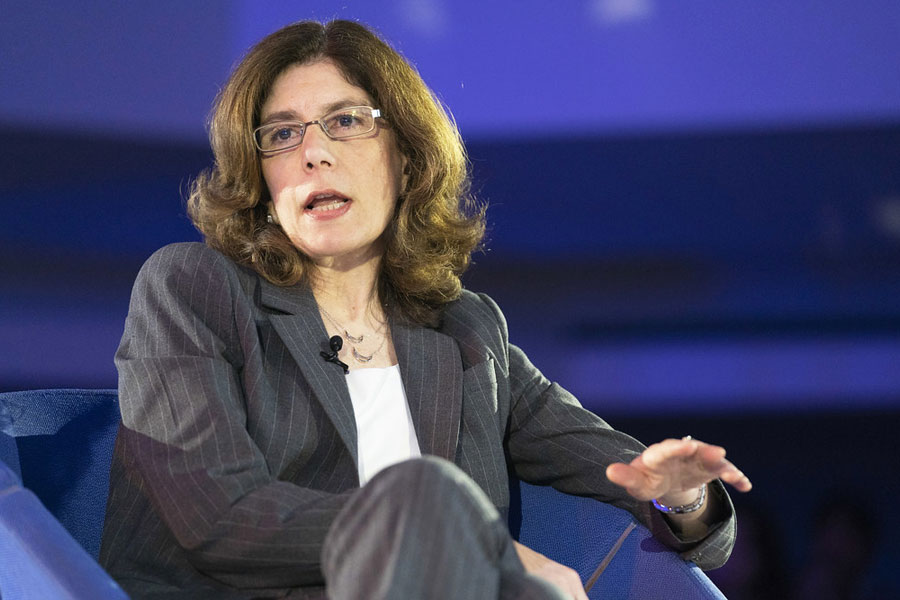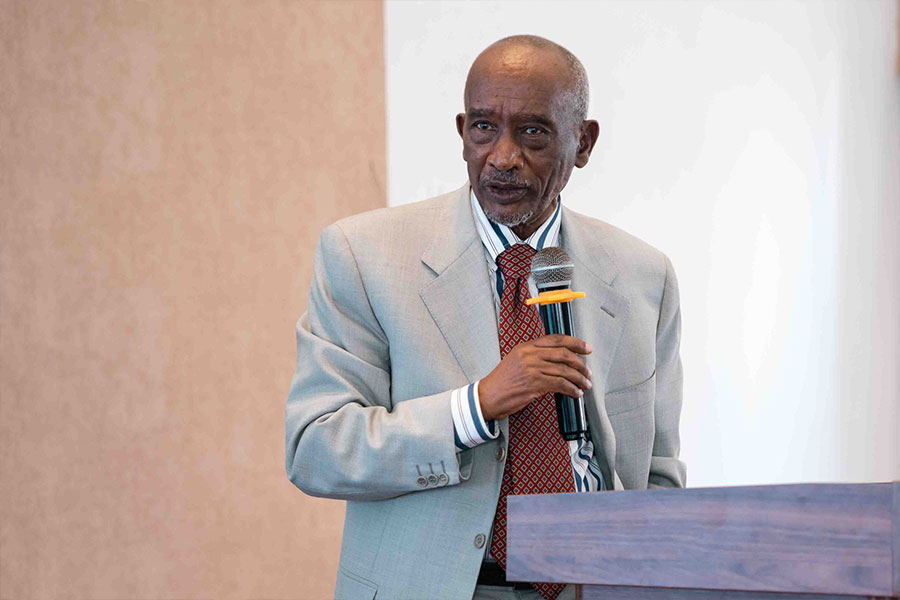
Exclusive Interviews | Jan 24,2023
Mar 4 , 2023
By Carolyn Kissane
The other day as I was in the taxi, I heard this older man talking about how corruption has gotten worse in this day and age. As I internally deliberated on the accuracy and truth of his statement, he continued blaming this generation for everything that has gotten worse. One could hear the distaste in his voice.
It really did not come as a surprise since I have heard similar comments before, too many times to be precise. I get why these people share such sentiments, but to say everything is worse is not right. I would say the quality of life for the majority has gotten better. Besides, the older generation is responsible for bringing up the younger generation so they partly carry the blame for how we turned out.
I cannot be the only one who has heard older people saying the younger generation is entitled and lazy while the current describes them as out of touch and stubborn. It seems like there is always some kind of intergenerational tension brewing beneath the surface.
I believe they all have to do with the human tendency to categorize people that are different. It is important to understand that each generation has its own unique experiences and cultural influences. People who grew up in different time periods may have different values, priorities, and worldviews. These differences can lead to misunderstandings.
It is innate to have a sense of pride in own generation as each has its own unique characteristics, experiences, and cultural influences. However, some people tend to take it to the extreme, often dismissive or condescending towards other generations.
They also feel a strong sense of identity with their peers. People tend to identify with others who share similar experiences, values, and cultural backgrounds. This identification can be particularly strong for people who grew up during significant cultural shifts. Some tend to perceive others as inferior due to a variety of factors including generational stereotypes, biases, or misunderstandings. These perceptions can lead to a sense of superiority or disdain towards other generations and a reluctance to engage in conversations that involve perspectives that are different from their own.
Another reason why people talk ill of other generations is that they may feel threatened or insecure. When people encounter others who are different from them, it can trigger feelings of discomfort or anxiety. They may worry that their own values or way of life are being threatened by the presence of others who are different. In the case of intergenerational tensions, some people may feel that their own generation is being unfairly criticized or marginalized. They may feel that younger generations are not showing enough respect for their elders, or that older generations are not willing to adapt to new ways. These feelings of insecurity can lead to defensive or hostile attitudes towards people from other generations.
The way that information is disseminated and consumed also contributes to intergenerational tensions. With the rise of social media and other digital platforms, it is easier for people to find like-minded communities and sources of information that reinforce their own beliefs and biases.
People who only talk about their generation can be hard to engage with, as they tend to dominate conversations and are often dismissive of other views. They may also be resistant to change or new ideas, as they are invested in preserving the values and traditions of their generation. This can make it difficult to find common ground or build relationships with these individuals, especially if they are unwilling to listen to or consider alternative perspectives.
It is important to cultivate an open and curious mindset. This means being willing to listen and learn from others, regardless of their age or background. It also means being willing to challenge assumptions and beliefs. Intergenerational tensions are natural in society but can be divisive if left unchecked. We should build mutual respect and understanding, by seeking out opportunities for dialogue and engagement.
PUBLISHED ON
Mar 04,2023 [ VOL
23 , NO
1192]


Exclusive Interviews | Jan 24,2023

Verbatim | Dec 07,2024

Photo Gallery | 168222 Views | May 06,2019

Photo Gallery | 158467 Views | Apr 26,2019

Photo Gallery | 147852 Views | Oct 06,2021

My Opinion | 136097 Views | Aug 14,2021

Dec 22 , 2024 . By TIZITA SHEWAFERAW
Charged with transforming colossal state-owned enterprises into modern and competitiv...

Aug 18 , 2024 . By AKSAH ITALO
Although predictable Yonas Zerihun's job in the ride-hailing service is not immune to...

Jul 28 , 2024 . By TIZITA SHEWAFERAW
Unhabitual, perhaps too many, Samuel Gebreyohannes, 38, used to occasionally enjoy a couple of beers at breakfast. However, he recently swit...

Jul 13 , 2024 . By AKSAH ITALO
Investors who rely on tractors, trucks, and field vehicles for commuting, transporting commodities, and f...

Sep 27 , 2025
Four years into an experiment with “shock therapy” in education, the national moo...

Sep 20 , 2025
Getachew Reda's return to the national stage was always going to stir attention. Once...

Sep 13 , 2025
At its launch in Nairobi two years ago, the Africa Climate Summit was billed as the f...

Sep 6 , 2025
The dawn of a new year is more than a simple turning of the calendar. It is a moment...

Sep 27 , 2025
Meskel Square turned into a rolling wave of colour and sound on Friday, September 26, 2025, as thousands pressed toward the annual bonfire c...

Unity University has increased tuition fees sharply, jolting students and families alike, drawing critici...

Sep 27 , 2025 . By BEZAWIT HULUAGER
Seventeen years after its inception as a flagship market reform for agricultural modernisation, the Ethio...

Sep 27 , 2025 . By BEZAWIT HULUAGER
The elevator industry is bracing for sweeping reforms as construction regulators are to impose the first...